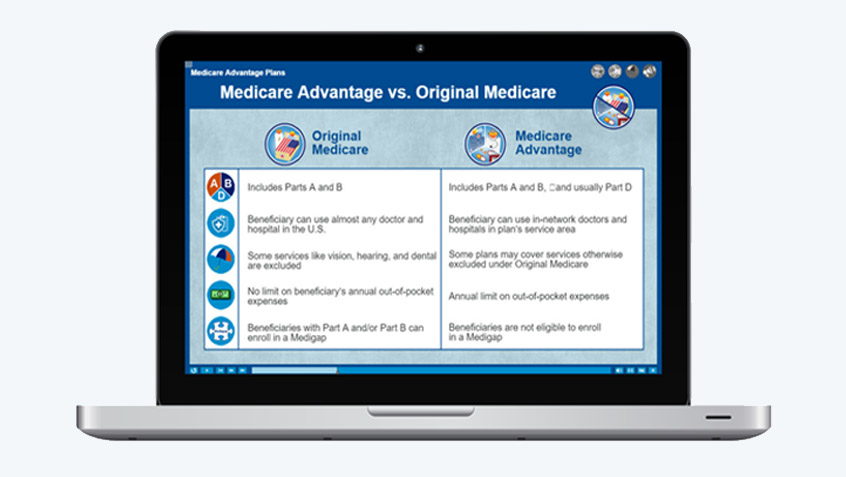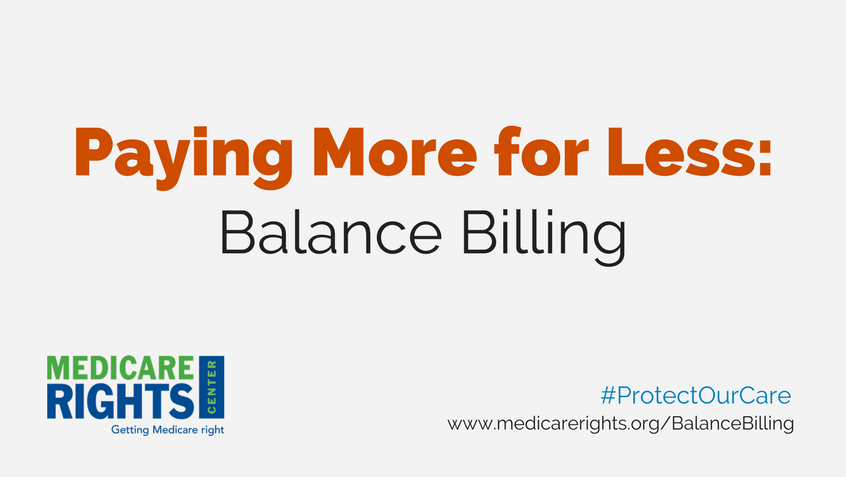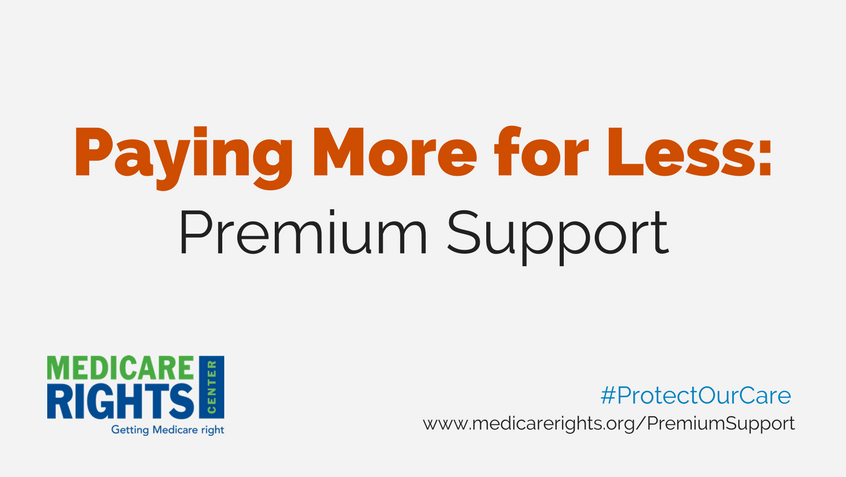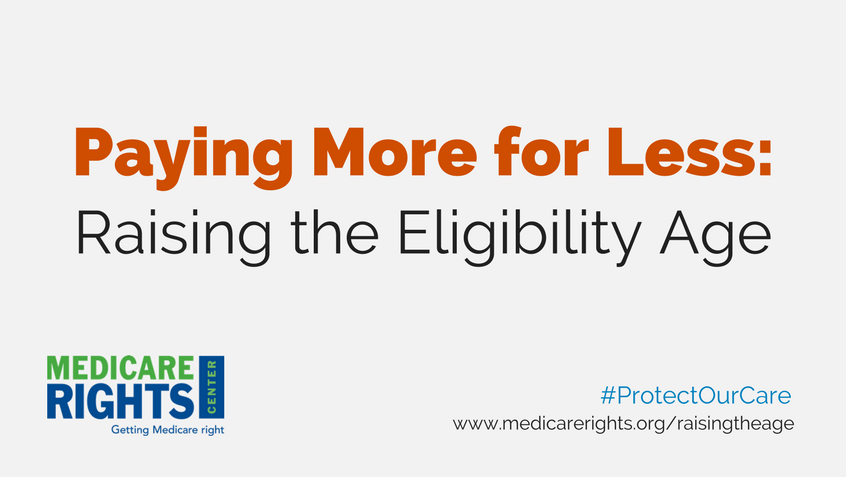The Medicare Rights Center recently announced the launch of the new-and-improved Medicare Interactive Pro (MI Pro), a comprehensive online curriculum designed to empower any professional to help their clients, patients, employees, retirees, and others navigate their Medicare coverage to access affordable health care.
Read More
Dear Marci,
I just turned 65 and don’t feel like I know very much about what’s covered and what’s not covered under Medicare. How can my doctor help me get the services and care I’m entitled to receive, and how can I be sure her recommendations are in my best interests?
– Noreen (Jonesboro, AR)
Read More
As policymakers continue to debate the future of our country’s health care system, some policymakers endorse proposals to give Medicare providers the right to charge seniors and people with disabilities more for their care through balance billing or private contracting. Under these plans, Medicare providers could require patients to negotiate a contract for the cost of their care, and people with Medicare would have additional payments on top of their premiums, copayments, and coinsurance. Unless they successfully negotiate otherwise, patients would also be responsible for filing the Medicare claim.
Read More
Currently, people with Medicare are all entitled to the same set of basic benefits, and the program treats all people with Medicare equally. Some policymakers support changing Medicare into a premium support program, which would mean people with Medicare would receive a voucher to purchase health coverage through a private plan or Original Medicare.
Read More
If you have Medicare and are enrolled in a Medicare Advantage (MA) plan, you can switch to Original Medicare during the Medicare Advantage Disenrollment Period (MADP), which occurs every year from January 1 to February 14.
Read More
Last week, the Kaiser Family Foundation (KFF) released an issue brief on Medicare’s financial outlook. Medicare’s funding, finances, and future continue to be major topics of conversation, including during the confirmation hearings for President Trump’s administrative nominees. With this brief, KFF brings much-needed clarity to these discussions. The brief explains Medicare funding, the Affordable Care Act’s (ACA’s) impact on Medicare’s long-term financial stability, and what an aging population means for Medicare going forward.
Read More
In December, the Centers for Medicare & Medicaid Services (CMS) finalized a demonstration program that will test new ways for Medicare to pay hospitals that perform heart or hip surgeries. Under the new model, Medicare will pay participating hospitals one payment, known as a “bundled payment,” for a person’s hospital stay and the 90 days following a heart attack, cardiac bypass surgery, or surgical hip treatment. The hospital stay and 90-day post-stay period together are known as an “episode of care.” As part of this demonstration, CMS announced the creation of an ombudsman to serve people with Medicare in this model and other similar programs—a move applauded by Medicare Rights.
Read More
Dear Marci,
While I am not anticipating any problems with my private insurance plan, I would like to be prepared for the worst. If difficulties arise, am I allowed to change plans at any time?
– Ronald (Bowman, ND)
Read More
If you’re among the 7 million Americans enrolled in the Qualified Medicare Beneficiary (QMB) Program , doctors, suppliers, and other providers aren’t allowed to bill you for Medicare costs when you receive covered medical services, equipment, and supplies. Your Medicare premiums, as well as costs like deductibles, coinsurance, and copayments, are all covered by Medicaid.
Read More
As policymakers continue to debate the future of our country’s health care system, some lawmakers support increasing the Medicare eligibility age from 65 to 67 in order to save money for the federal government. This costly benefit cut is sometimes defended by arguing that as Americans live longer and delay retirement, most people will not need Medicare at age 65. But most Americans retire well before age 67—half of all men are retired by age 64 and half of all women by age 62. Our latest issue brief, “Paying More for Less: Raising the Eligibility Age,” highlights the harmful consequences of increasing the eligibility age for Medicare above 65.
Read More










